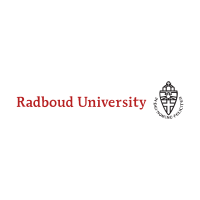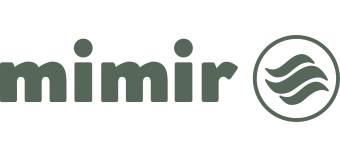
Vacatures geplaatst door Radboud Universiteit
Mimir verzorgt het geautomatiseerde beheer van vacatures op vacaturebanken voor Radboud Universiteit.
Laatste vacatures
Postdoc Position: Systems Biology of Malaria Gametocytes
As a postdoctoral researcher, you will contribute to a collaborative ZonMW open competition project (a team of two postdoctoral fellows embedded in two different institutes) dedicated to dissecting gametocyte development in vivax-type malaria parasites. To unveil unique parasite biology, we will combine state-of-the-art omics, gene editing, and imaging technologies in a highly collaborative setting.
We need your expertise in applying and integrating various omics approaches (single-cell and spatial transcriptomics, epigenomics, proteomics). Furthermore, you will have the opportunity to develop novel ideas and work on additional independent projects that align with this research theme.
Indeed
0 sollicitaties
0 views
02-03-2026 Radboud Universiteit
Postdoc Position: Systems Biology of Malaria Gametocytes
As a postdoctoral researcher, you will contribute to a collaborative ZonMW open competition project (a team of two postdoctoral fellows embedded in two different institutes) dedicated to dissecting gametocyte development in vivax-type malaria parasites. To unveil unique parasite biology, we will combine state-of-the-art omics, gene editing, and imaging technologies in a highly collaborative setting.
We need your expertise in applying and integrating various omics approaches (single-cell and spatial transcriptomics, epigenomics, proteomics). Furthermore, you will have the opportunity to develop novel ideas and work on additional independent projects that align with this research theme.
0 sollicitaties
0 views
02-03-2026 Radboud Universiteit
Postdoc Position: Systems Biology of Malaria Gametocytes
As a postdoctoral researcher, you will contribute to a collaborative ZonMW open competition project (a team of two postdoctoral fellows embedded in two different institutes) dedicated to dissecting gametocyte development in vivax-type malaria parasites. To unveil unique parasite biology, we will combine state-of-the-art omics, gene editing, and imaging technologies in a highly collaborative setting.
We need your expertise in applying and integrating various omics approaches (single-cell and spatial transcriptomics, epigenomics, proteomics). Furthermore, you will have the opportunity to develop novel ideas and work on additional independent projects that align with this research theme.
AcademicTransfer
2 sollicitaties
0 views
02-03-2026 Radboud Universiteit
PhD Position: Providing informal care to loved ones at the expense of one’s social relations?
This PhD project is part of the SOCION consortium. SOCION addresses a pressing challenge of our time: fragmentation in societies. Social cohesion is society’s fabric and it is key to sustainable societies and citizens’ well-being. However, it is increasingly undermined by erosion and polarisation between communities, factions, and groups. In this project, psychologists, social historians, demographers, philosophers, and sociologists collaborate with civic organisations to generate and integrate insights into how connections between individuals, groups, and institutions contribute to new pathways to and forms of social cohesion.
This specific PhD project, entitled “Providing informal care to loved ones at the expense of one’s social relations?”, starts from the societal observation that population ageing results in a growing need for care, which increasingly falls on informal caregivers: people in the personal network of the person who needs help. This PhD project explores the consequences of providing informal care for the quality of caregivers’ social relations. If providing informal care reduces the quality or number of the caregivers’ relations with their partner, family, or friends, informal carers will lack the network they need once they require care themselves. Combining sociological and social-psychological theoretical mechanisms, this project answers the question of whether, why, and under which conditions providing informal care has consequences for informal carers’ social relations. As such, it provides key insights into how we may optimize care arrangements. More information on the project can be found here.
As a PhD candidate you will conduct your research, and take part in the SOCION consortium and ICS Graduate School. In addition, you will devote 10% of your time to teaching in the context of the Sociology programme at Radboud University.
Would you like to learn more about what it’s like to pursue a PhD at Radboud University? Visit the page about working as a PhD candidate.
Indeed
0 sollicitaties
0 views
02-03-2026 Radboud Universiteit
PhD Position: Providing informal care to loved ones at the expense of one’s social relations?
This PhD project is part of the SOCION consortium. SOCION addresses a pressing challenge of our time: fragmentation in societies. Social cohesion is society’s fabric and it is key to sustainable societies and citizens’ well-being. However, it is increasingly undermined by erosion and polarisation between communities, factions, and groups. In this project, psychologists, social historians, demographers, philosophers, and sociologists collaborate with civic organisations to generate and integrate insights into how connections between individuals, groups, and institutions contribute to new pathways to and forms of social cohesion.
This specific PhD project, entitled “Providing informal care to loved ones at the expense of one’s social relations?”, starts from the societal observation that population ageing results in a growing need for care, which increasingly falls on informal caregivers: people in the personal network of the person who needs help. This PhD project explores the consequences of providing informal care for the quality of caregivers’ social relations. If providing informal care reduces the quality or number of the caregivers’ relations with their partner, family, or friends, informal carers will lack the network they need once they require care themselves. Combining sociological and social-psychological theoretical mechanisms, this project answers the question of whether, why, and under which conditions providing informal care has consequences for informal carers’ social relations. As such, it provides key insights into how we may optimize care arrangements. More information on the project can be found here.
As a PhD candidate you will conduct your research, and take part in the SOCION consortium and ICS Graduate School. In addition, you will devote 10% of your time to teaching in the context of the Sociology programme at Radboud University.
Would you like to learn more about what it’s like to pursue a PhD at Radboud University? Visit the page about working as a PhD candidate.
AcademicTransfer
1 sollicitatie
0 views
02-03-2026 Radboud Universiteit


